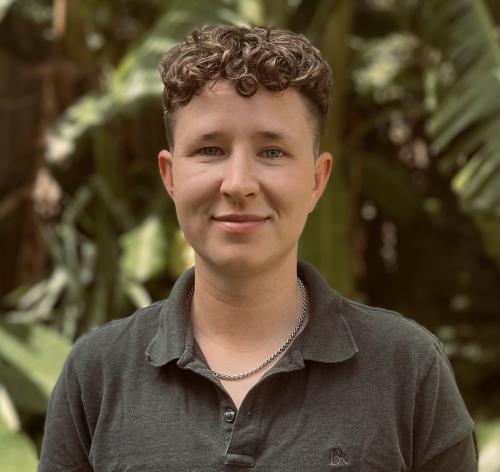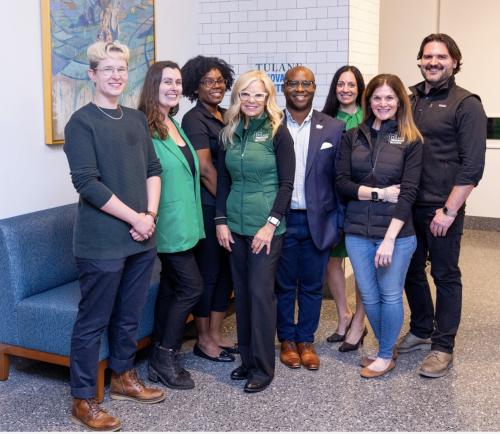Interview with Jae McKee
Co-Founder, Nucleate New Orleans
(they/them)
Tulane University Bioinnovation PhD Student

Tell us what Nucleate is and how someone can get involved.
Nucleate is an international nonprofit organization that aims to support future leaders in biotech through educational initiatives and networking opportunities. Nucleate is run by graduate students for graduate students. Last year, I was among a group of Tulane and LSU students who started a regional chapter of Nucleate to foster community among New Orleans universities and facilitate relationships between students and the local biotech industry. We had a great first year of operation as a chapter and were able to throw seven successful events thanks to support from sponsors like the Innovation Institute. Involvement in our chapter also connects members with the greater Nucleate network, made up of dedicated students and successful alumni that are located all over the world. The New Orleans chapter is always looking for motivated students to get involved. The best way to stay in the loop is to sign up for our newsletter and follow us on our socials for information on upcoming events and leadership recruitment.

Are there any Nucleate events coming up that we should know about it?
Our next event is Taps & Tech, a networking happy hour at Urban South on October 3. Register here. Additionally, we are working hard to plan for a November event that will feature a panel of local biotech leaders. Stay tuned to our socials and newsletter for further details.
What type of research are you currently working on (and is there a commercial application for it)?
My current research is focused on creating a microphysiological system (MPS) model of idiopathic pulmonary fibrosis (IPF), a chronic and progressive lung disease that has incredibly limited treatment options. Drug candidates for IPF often fail in clinical trials due to lack of efficacy, suggesting that current preclinical models are unable to weed out ineffective candidates. If an MPS can reject these ineffective drugs during preclinical studies, then pharmaceutical companies can save money that is typically wasted on unsuccessful clinical trials. This would allow pharmaceutical companies to redirect those resources to support more effective drug candidates, which would ultimately bring effective treatments to IPF patients in less time.
Tell us about your time as a Commercialization intern at the Tulane Innovation Institute.
I really enjoyed my time as a commercialization intern at the Innovation Institute. One of my main tasks as an intern was writing market research reports for recently disclosed Tulane technologies. I enjoyed this work because it allowed me to learn more about the market landscape of various biotech subfields, and it also helped me better conceptualize the commercialization potential of my own research.

How do you think Tulane can attract more researchers interested in entrepreneurship and commercializing their research?
Tulane can attract more entrepreneurial researchers by supporting our current innovators with programming that empowers them to be successful in industry. The success of these leaders will grow Tulane’s reputation in New Orleans and beyond as a hub for entrepreneurship, ultimately attracting more researchers who are interested in commercialization.
What is the best part about being a researcher in New Orleans?
The culture of New Orleans lends itself to a good work/life balance. I like that when I have a frustrating day in the lab, I can step out into a city that is filled with art, culture, and community.
What are you most excited about in the next year?
I’m excited to continue cultivating an entrepreneurial life sciences community with Nucleate New Orleans. If that sounds exciting to you too, then we hope to see you at our events!
